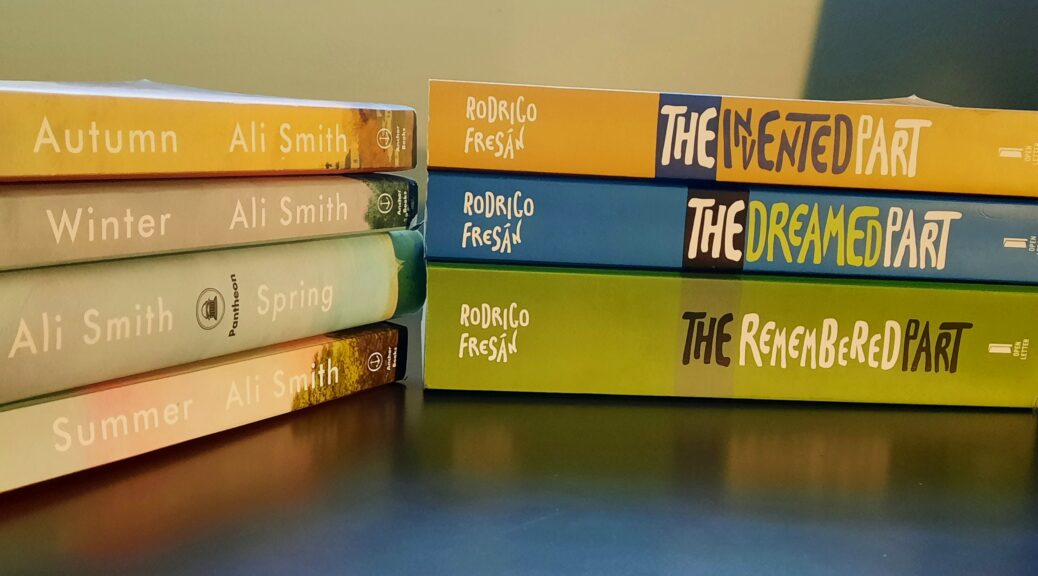Following on the rousing success of Jeff Vandermeer October, N. K. Jemisin January, and Ali Smith March ... WGOMFMBD proudly presents ... Markson June!
I've decided to read the Notecard Quartet of books by David Markson this month:
* Reader's Block (1996)
* This is Not a Novel (2001)
* Vanishing Point (2004)
* The Last Novel (2007)
They are all very post-modern, full of literary allusion, but almost no plot. Markson described the books as someone sitting alone with a head full of everything they've ever read. He wrote them by assembling notes on index cards until he collected enough of them to make a novel.
I first read Wittgenstein's Mistress by Markson a long time ago because of that one quote by David Foster Wallace. That book is also probably worth another read if I have time this month, but I mostly remember reading This is Not a Novel and being blown away by how the removal of so much of what structure a novel promises could still deliver such a smart and incredible impact. I haven't read the other three in the quartet, but I'm very excited to get the full experience. I find writers and writing fascinating. I think it's some amount of jealousy that I have because I know that I won't ever just drop everything and devote my entire life to finding great words or sentences and then making my own great words and sentences, but I know that doing that would be such an intensely satisfying project for me. Instead I experience it vicariously through post-modernist novels, which is also very fun!
I have found the site Reading Markson Reading to be a really interesting companion to starting the Notecard Quartet (more insight into the creator and the process that I find so interesting), so if you are at all intrigued, you should tool around there a bit.
Books read in May:
Babel by R.F. Kuang - really good book - magic, translation, words, colonialism, solidarity - this had it all, and put it together incredibly well.
Not a River by Selva Almada (translated by Annie McDermott) - less than 90 pages, but still a remarkable book. Two men and a boy are fishing and camping on an island in a river. They interact with the island's residents, they reveal their shared history, a surprising number of dead people are involved. The last 30 pages were nearly impossible to tear my eyes away from. Remarkable book.
Kensington Gardens by Rodrigo Fresan (translated by Natasha Wimmer) - all that stuff I said about writers and writing up above? Fresan is the maximalist mirror image of Markson - uncountable allusions that all take place in the mind of a narrator, but nothing Fresan does could ever fit on a notecard. This one uses J. M. Barrie and Peter Pan as the touchpoint, but of course it's actually about writing, and stories, and being a son, and being a father (like every Fresan book).
 |
 |
Once Upon a Prime by Sarah Hart was most fun for me when she talked about the structure of novels and related that back to mathematical concepts (teasing out Tolstoy's metaphor of history as calculus in War and Peace, describing the combinatorics of Perec's Life a User's Manual, etc.). Other chapters took apart the geometry and arithmetic of some famous novels, which were fun little asides in their own way. If the title makes you think, "yeah, I'd be interested in that" then you'll like this book - it delivers on what is promised.


